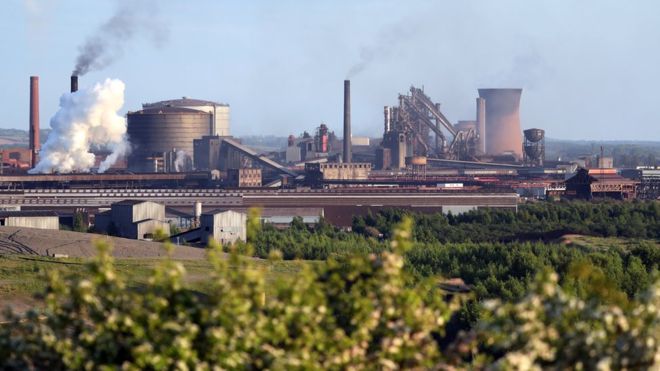MPs are to launch an inquiry into the UK’s steel industry after the collapse of one of the sector’s biggest firms.
The move by the Business Committee follows the liquidation of British Steel last month and concerns about the impact of Brexit on the steel industry.
The committee will look at the role of former owner Greybull Capital, and the government, in the company’s collapse.
MPs said they wanted to hold public evidence sessions with Greybull and the business secretary, among others.
British Steel was placed into compulsory liquidation on 22 May, putting 5,000 jobs at risk and endangering 20,000 in the supply chain.
It followed a breakdown in rescue talks between the government and private equity firm Greybull.
The government is covering the firm’s wage bill for now, but if a new buyer cannot be found it could be wound up and redundancies would follow.
The Official Receiver has said it has made contact with more than 80 potential buyers.
Rachel Reeves, who chairs the Business Committee, said: “It is vital that the government and Official Receiver do all they can to secure a viable future for British Steel.
“However, as a select committee we want to examine questions around the collapse of British Steel and the government’s approach, as well as about Greybull Capital’s stewardship and its commitments to investing in its future.
“More broadly, we want to examine the serious challenges facing the future of the steel sector in the UK.”
‘Perilous, uncertain place’
Ms Reeves said the inquiry would examine the serious challenges being faced by the steel sector in the UK.
She said long-term industry concerns on issues like energy costs and business rates had been “largely unaddressed” by the government.
The inquiry will also explore whether additional responsibilities should be required of the owners of national strategic assets.
Unite’s assistant general secretary Steve Turner welcomed the inquiry, adding: “We need to look seriously at how a strategically important national industry has ended up in such a perilous, uncertain place, and then we need government to take the steps necessary to bring security to the sector.”
He added that it was right that Greybull’s role in the collapse was thoroughly examined.
Greybull bought the business for £1 from Tata during depths of the 2016 steel crisis in the hopes of turning the business around, going on to rebrand it as British Steel.
It had sought financial support from the government before it was placed in liquidation.
The firm was hit by a slump in orders from European customers due to uncertainty over Brexit, as well as a weakening in the pound since the 2016 EU referendum.

